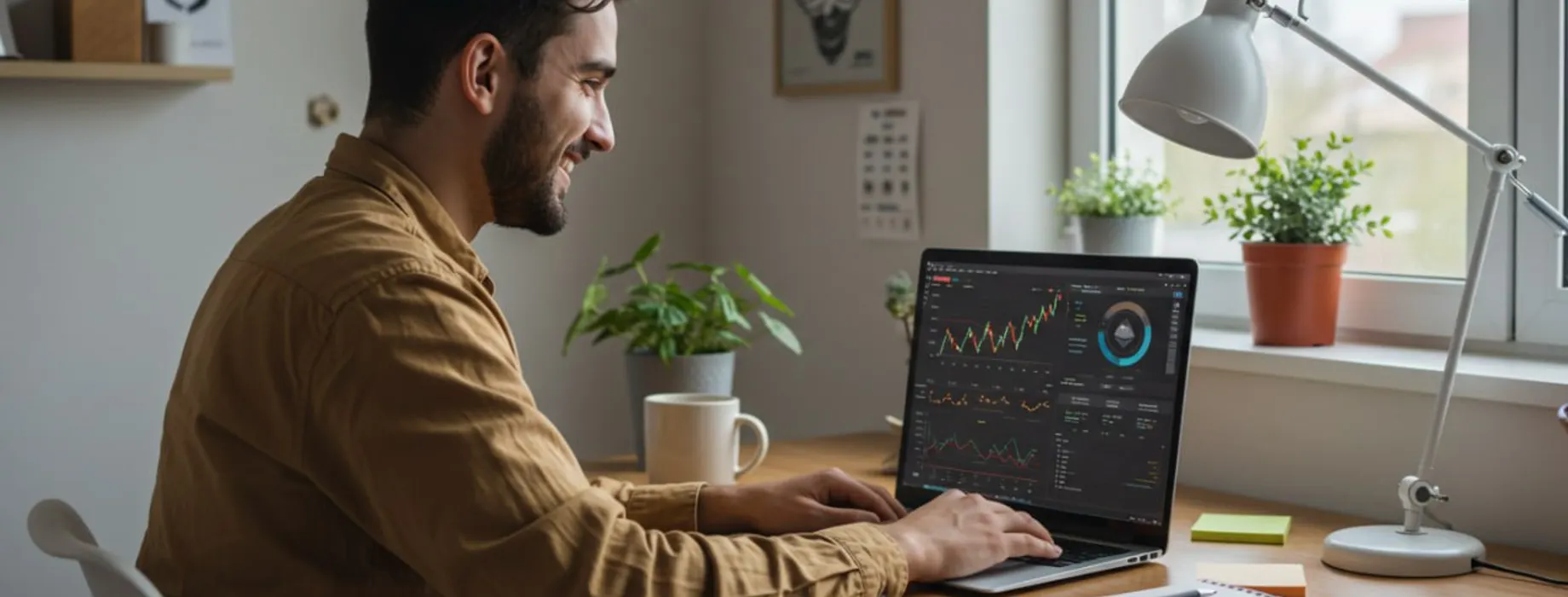- Long Position: Buying futures contracts expecting price increase
- Short Position: Selling futures contracts expecting price decrease
- Margin: Collateral deposited to maintain positions
- Leverage: Ability to control large positions with small capital
Futures Trading for Beginners: A Practical Introduction to Financial Markets

Futures trading for beginners opens doors to financial markets that many find complex at first glance. This practical overview covers the essential aspects of futures contracts, effective strategies for newcomers, and common pitfalls to avoid when starting your trading journey.
What Are Futures Contracts?
Futures contracts are agreements to buy or sell assets at predetermined prices with settlement occurring at a future date. These standardized contracts trade on futures exchanges and cover various markets including commodities, stock indices, currencies, and bonds.
| Aspect | Description |
|---|---|
| Contract Size | Standardized amount of the underlying asset |
| Expiration Date | When the contract must be settled |
| Margin Requirement | Initial deposit needed to open positions |
| Settlement | Physical delivery or cash settlement |
Basic Terminology You Should Know
Understanding key terms is crucial before attempting to make money trading futures. These concepts form the foundation of your trading knowledge.
| Term | Meaning |
|---|---|
| Contango | When future prices are higher than current spot prices |
| Backwardation | When future prices are lower than current spot prices |
| Tick Size | Minimum price movement of a contract |
| Volume | Number of contracts traded in a specific period |
Getting Started with Minimal Risk
For newcomers to futures trading, beginning with a cautious approach helps build confidence and skills. Starting with micro contracts or practicing on demo accounts provides practical experience without significant financial risk.
- Start with small position sizes relative to your capital
- Focus on learning one market thoroughly before diversifying
- Document all trades and review performance regularly
| Starting Step | Purpose |
|---|---|
| Education | Building foundational knowledge |
| Paper Trading | Practicing without real money |
| Trading Plan | Creating systematic approach |
| Risk Management | Setting rules to protect capital |
Choosing the Right Trading Platform
Selecting an appropriate trading platform is essential for futures trading for beginners. Platforms like Pocket Option offer intuitive interfaces and educational resources that help newcomers navigate the complexities of futures markets.
- User-friendly interface with accessible tools
- Reliable execution with minimal slippage
- Comprehensive educational resources
| Feature | Importance |
|---|---|
| Charting Tools | Technical analysis capabilities |
| Fee Structure | Transaction and maintenance costs |
| Customer Support | Assistance when problems arise |
| Mobile Access | Trading on different devices |
Risk Management Principles
Proper risk management separates successful traders from those who struggle. When you attempt to make money trading futures, protecting your capital should be your primary concern.
- Never risk more than 1-2% of your trading capital on a single trade
- Always use stop-loss orders to limit potential losses
- Understand the concept of risk-to-reward ratio
| Risk Factor | Management Strategy |
|---|---|
| Market Volatility | Adjust position size accordingly |
| Overnight Risk | Consider reducing exposure |
| Leverage Risk | Use appropriate margin levels |
| Correlation Risk | Diversify across non-correlated markets |
Conclusion
Futures trading for beginners requires patience, education, and disciplined practice. By understanding the basic mechanics, starting with appropriate risk levels, and continuously improving your knowledge, you can develop the skills necessary for trading futures markets effectively. Remember that consistent profitability comes from systematic approaches rather than impulsive decisions.
FAQ
What capital do I need to start futures trading?
Most futures brokers require between $2,000-$5,000 minimum to open an account, though micro futures contracts allow starting with less. Consider having at least $10,000 to adequately manage risk with proper position sizing.
How much time should I dedicate to learning before real trading?
Spend at least 2-3 months studying markets, practicing on demo accounts, and developing a trading plan before committing real capital. Continue education throughout your trading career.
Are futures more risky than stocks?
Futures can be more risky due to higher leverage and volatility. However, with proper risk management and position sizing, futures trading risk can be controlled similarly to stock trading.
What are the tax implications of futures trading?
In many jurisdictions, futures contracts receive preferential tax treatment (60/40 rule in the US) compared to stocks. Consult with a tax professional familiar with trading tax regulations in your country.
How can I identify good trading opportunities as a beginner?
Focus on high-probability setups with clear support/resistance levels, trend continuation patterns, and favorable risk-reward ratios. Use multiple timeframe analysis and avoid overtrading during low-liquidity periods.